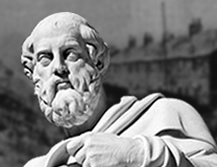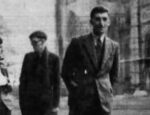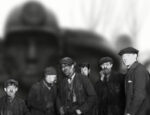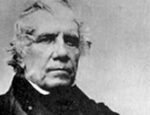Description
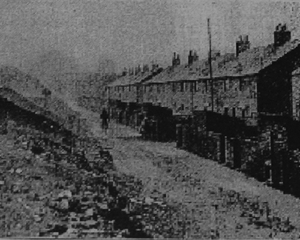 Welcome to the Durham coal town of Spennymoor, whose motto runs: spe nemo ruet (‘with hope no one will fail’). At its peak it boasted the largest ironworking mill in Europe; in the 1920s and 30s it was an industrial boomtown gone bust. From the ashes of severe unemployment took root and before long flourished a social and cultural organisation that enabled Spennymoor residents to enjoy the cultural rewards for which generations had toiled so hard to sustain.
Welcome to the Durham coal town of Spennymoor, whose motto runs: spe nemo ruet (‘with hope no one will fail’). At its peak it boasted the largest ironworking mill in Europe; in the 1920s and 30s it was an industrial boomtown gone bust. From the ashes of severe unemployment took root and before long flourished a social and cultural organisation that enabled Spennymoor residents to enjoy the cultural rewards for which generations had toiled so hard to sustain.
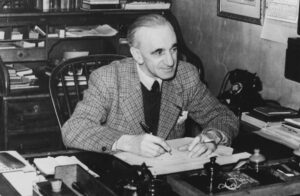 When a man called Bill Farrell, fresh from the University Settlement Movement headquarters at Toynbee Hall, arrived in Spennymoor, he saw that the unemployed miners, which made up at least 35% of the population, needed encouragement (in his words) ‘to think of other things and other spheres of possible work besides the defunct or moribund mine’.
When a man called Bill Farrell, fresh from the University Settlement Movement headquarters at Toynbee Hall, arrived in Spennymoor, he saw that the unemployed miners, which made up at least 35% of the population, needed encouragement (in his words) ‘to think of other things and other spheres of possible work besides the defunct or moribund mine’.
Farrell’s Settlement, with the backing of the Pilgrim Trust, set out ‘to encourage tolerant neighbourliness and voluntary service, and give members opportunities for increasing their knowledge, widening their interests, and cultivating their creative powers in a friendly atmosphere’. What it achieved was perhaps even more important. As the reporter-activist Arnold Hadwin put it: ‘The Settlement gave an impoverished community the will and means to fight back against the failings of the State, with assurance and dignity.’
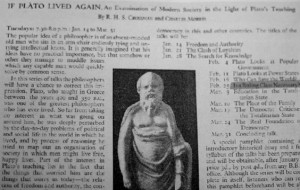 In January to March 1936 the Spennymoor Settlement, established in a disused shop on the high street, was the scene of an encounter with Plato by employed and unemployed Spennymoor inhabitants alike. Each Tuesday evening at 7.30 the men would gather around the radio and listen to two young Oxford fellows ‘examine modern society in the light of Plato’s teaching’. It was part of a series of BBC broadcasts of what was essentially an adult educational course entitled If Plato Lived Again. The two young philosophers were R.H.S. Crossman and Charles Morris. Crossman (1907-1974) the lead writer of the programme, was – at the time – a fellow of New College, Oxford, writing his first book entitled Plato Today (1937) and wowing undergraduates with his ‘special gift for the toughest sort of dialectic’. He became a Labour MP in 1945 and won fame posthumously as a political diarist. Morris (1898-1990) was fellow and tutor of philosophy at Balliol College, Oxford, and later became a knighted university administrator.
In January to March 1936 the Spennymoor Settlement, established in a disused shop on the high street, was the scene of an encounter with Plato by employed and unemployed Spennymoor inhabitants alike. Each Tuesday evening at 7.30 the men would gather around the radio and listen to two young Oxford fellows ‘examine modern society in the light of Plato’s teaching’. It was part of a series of BBC broadcasts of what was essentially an adult educational course entitled If Plato Lived Again. The two young philosophers were R.H.S. Crossman and Charles Morris. Crossman (1907-1974) the lead writer of the programme, was – at the time – a fellow of New College, Oxford, writing his first book entitled Plato Today (1937) and wowing undergraduates with his ‘special gift for the toughest sort of dialectic’. He became a Labour MP in 1945 and won fame posthumously as a political diarist. Morris (1898-1990) was fellow and tutor of philosophy at Balliol College, Oxford, and later became a knighted university administrator.
Settlement members formed a listening group around this programme; not all of them were miners, but every one of them lived in the extreme deprivation of a failing Durham coal town during the Depression. This kind of programme was clearly an invaluable point of access for individuals and groups such as the Spennymoor listening group, nationwide – not only access to University-style education but to a common cultural inheritance of which they might otherwise have known nothing about. Through the prism of Plato’s philosophy, contemporary events and dilemmas were presented in an accessible and provocative way. Fears relating to the rise of fascism abroad (and at home) swim beneath, and from time to time leap clear from the surface of this philosophical series.

